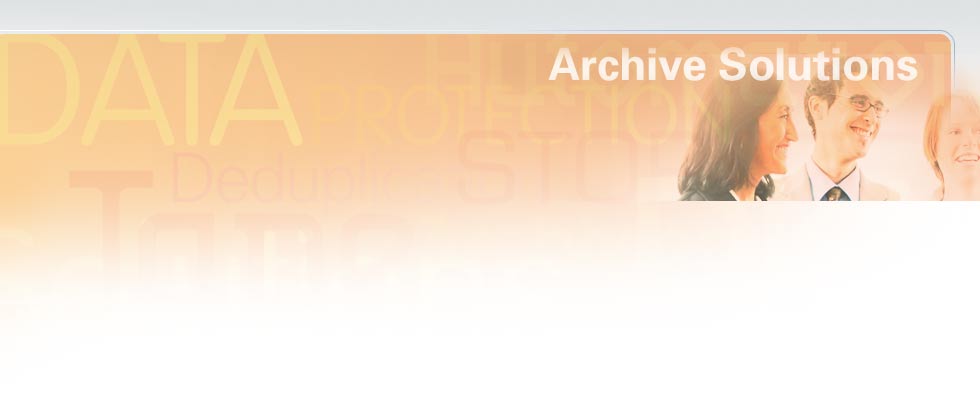
Overland Tandberg Data Archiving Solutions
Data Archiving and Regulatory Compliance

Over the last several decades, businesses have become even more aware of the need to back up and archive their data as part of their overall business continuity and disaster recovery plans. To protect themselves adequately, businesses must improve how they manage and safeguard their organizational data and records. Good records management includes both backup and archiving. While backup and archiving are often used interchangeably, it is important to distinguish between the two terms. Backup is used for short term data recovery. Data archiving is used for long-term data retention and regulatory compliance requirements.
Tape To the Rescue
Archived files can be kept for decades, usually at an offsite location. Keeping more than one copy is essential if you want to properly safeguard your data. Tape is typically used for archiving because of its affordability, archival life (30 years), reliability and portability.
According to Overland Tandberg Data, recent research has shown that 95% of data is never accessed after six months of creation, but most of this data needs to be maintained for compliance. Additionally, archiving unused data to tape significantly reduces data centre costs. Previous research has shown that a tape archiving solution is 27 times cheaper to run than a disk solution and consumes 270 times less power than disk, allowing companies to reduce costs to meet their green initiatives.
The key to success for any backup or archiving solution is its simplicity, how easy it is to restore the data at a later date. It's important to acknowledge that legal requirements affect different types of data and business sectors in unique ways. The first challenge for an organisation is to understand its legal obligations—what are the data retention periods, does the data need to be encrypted or stored in a non-changeable format like WORM (Write Once Read Many).
Many businesses have been slow to react; they are putting their data and businesses at risk. Greater than 50% of SMBs have no documented procedures for protecting data and only 20% regularly encrypt data as it is backed up to tape. So what are the issues?
- The lack of clear responsibility in many IT organisations—is it a storage or security issue?
- Concern over security measures—what's the impact on recovery times?
- Cost—is there a budget?
- Complexity—what technology should be used?
It's important to note that implementing proper procedures and processes for data management (backup, archive and compliance) will actually benefit the organisation:
- Reducing IT operating costs overall
- Supporting litigation or avoiding the issue in the first place
- Speeding up investigation of issues
The Lifecycle of Data
Tape is tried and tested and it forms the last line of defence for many organisations (what if the unknown happened?). Tape technology has evolved significantly; LTO tape, for example, is generally faster than disk, and offers storage capacities up to 3TB on a single cartridge. Tape supports WORM and encryption, allowing data to be safely and securely stored offsite. The use of encryption can also be used to manage the lifecycle of data. By deleting the encryption key, organisations can effectively destroy data stored offsite, without having to retrieve individual tapes.
Overland Tandberg Data has recently announced the introduction of Linear Tape File System (LTFS). LTFS allows LTO-5 tape drives to connect directly to an operating system enabling users to drag and drop files directly on to tape, just as if it was a large hard disk, removing the need for expensive software. LTFS allows users to easily restore data at a later date by simply inserting the tape, browsing the contents and dragging the appropriate file or folder to the required designation.
LTFS is an open-technology, the specification is defined by the LTO consortium and all LTO vendor tape drives are fully compatible and fully interchangeable across all platforms and operating systems. Currently LTFS only supports MAC OS and LINUX, but Windows support will be added during the second half of 2011.
LTFS is free and easy to use. LTFS is designed to simplify archiving and it makes tape easier to use. As stated by Simon Anderson,Business Manager for tape products at Overland Tandberg Data, “LTFS is a new feature for LTO-5 and will evolve quickly. In time it should become the standard for archiving, LTFS has the potential to be the single greatest development in tape in the last 10 years”.
Today, businesses can choose from a variety of backup technologies and solutions to protect short-term data. For long-term data storage and compliance requirements organisations should look to utilise tape. As stated, the key to successful archiving is to understand legal obligations and to implement good procedures and processes for the protection of data, whether short- or long-term.

